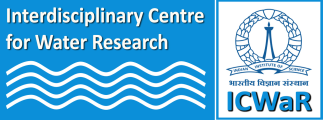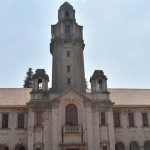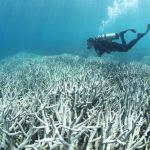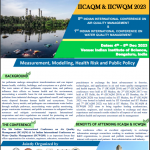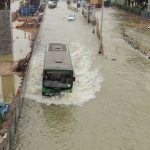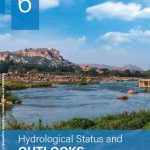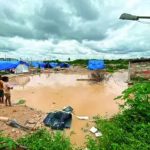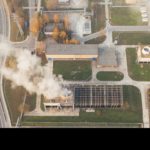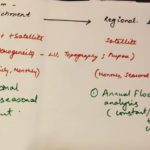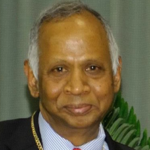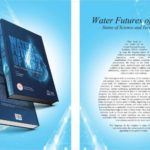ICWAR Seminar Series
|
02 Aug
2024
|
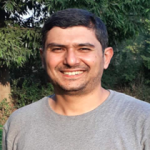
Name of the Speaker: Mr. Ashish Gupta Title of the Seminar: The ‘Idea’ of Sustainability of AgriFood Systems – Sustainable Food Date and Time: 02nd August 2024 (Friday), 04:00 pm Online Platform: MS Teams (link to join the seminar) About the Speaker: Mr. Ashish Gupta is an AgriFood Systems expert, presently also the International Consultant for Dr YS Parmar University of Horticulture and Forestry mentoring the state-wide implementation of SuSPNF. He has also founded JaivikHaat a 16-year-old social enterprise based in Delhi which has connected over 3000 smallholder farmers to markets through various appropriate institutional mechanisms and networks. Previously he was also leading the Global Organic Academy at IFOAM-Organic International in Bonn, Germany undertaking capacity building for Organic Agriculture systems across 6 countries in Central Asia, Eastern Europe and Africa. Over the last 16 years, Mr. Ashish has also undertaken roles on the board of the Organic Farming Association of India (OFAI), IFOAM-Asia and PGS Organic Council. He is also a former member of the Organic Regulation Committee at FSSAI and the Participatory Guarantee System (PGS) with MoA&FW. Mr. Ashish is also the founding trustee of Gram Disha Trust ( www.gramdisha.org ) which undertakes collaborations with smallholder farmers and craftspersons in Rural Himachal Pradesh. Over the last 3 years, he has also represented as an expert committee member to develop curriculums for Natural Farming for public institutions in Gujarat and Himachal Pradesh for Natural Farming, additionally, also school curriculums for NCERT. Between 2000-2009 he was also an IT Professional and then switched to working with small farmers. More details about him are available at- https://www.linkedin.com/in/guptaji Abstract: AgriFood Systems are at risk today, not just from the availability per capita, but also appropriate availability. There is a global and local narrative around the aspect of ‘Sustainability’, in simple terms, if the AgriFood System can withstand multiple crises and yet last for the subsequent generations ahead. On one hand, the problem appears to be plenty, with more food retail booming in India, at large, and on the other where health crises are proportionate levels are also increasing. From an Urban perspective it all looks fine whereas in the rural areas there still exist challenges of equity and fairness to be resolved. Climate change exists or it does not- depending on perspectives, however, to a small farmer it is a matter of life-continuity be it through daily wages, remunerative returns from agriculture or the choice of abandoning it for other avenues. All such challenges are being addressed through an appropriate understanding of Sustainability in Agriculture built upon the production system based on Natural Farming. Innovation is the key where no such precedence exists to bring participatory social change with the government intervention in Himachal Pradesh. There are 3 infrastructures being designed to address the systemic issues of Sustainability (ecological, economic and social)- these are Institutional, Digital and Physical. Innovations in each of these infrastructure paves a way for system wide changes through appropriate market access for smallholder Natural Farmers. It is the first time such a platform is being put to execution in India, the outcome of SuSPNF shall also provide a future pathway for other such innovations to address the aspect of Sustainability in AgriFood Systems in India. |
|
24 Jul
2024
|
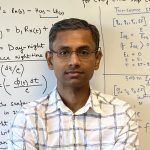
Name of the Speaker: Dr. Kanishka Mallick Title of the Seminar: Integrating Theory and Data Science with Thermal Remote Sensing for Advanced Modelling of Terrestrial Ecosystem Processes Date and Time: 24th July 2024 (Wednesday), 04:00 pm Online Platform: MS Teams (link to the video of the seminar) About the Speaker: Kanishka Mallick is a Sr. Lead R&T Scientist at the Luxembourg Institute of Science and Technology, and he was recently promoted to Principal R&T Scientist. He was a postdoctoral fellow at the Jet Propulsion Laboratory, California Institute of Technology, from 2011 to 2013. Prior to that, he held a postdoctoral fellowship at Lancaster University from 2008 to 2011 on a NERC-funded programme and was a visiting scientist at Purdue University in 2010. He was awarded an International Mobility Fellowship by the Luxembourg National Research Fund from 2020 to 2023 to study ecosystem water cycle partitioning at the University of California, Berkeley. His research interests include investigating the interactions of water, energy, and carbon fluxes in the terrestrial ecosystems by integrating thermal and multispectral remote sensing information in both physically based models and statistical models. He has co-authored around 50 publications in peer reviewed journals and has received over 5 million Euros in research funding from various organizations. His models and methods are used operationally for global evaporation mapping at NASA, JPL. He is the science PI of European ECOSTRESS Hub funded by European Space Agency (ESA) for generating continental scale evapotranspiration (ET), land surface temperature (LST), and water stress products. His model is also integrated in operational evaporation product development chain for the upcoming Indo-French TRISHNA mission. In collaborating with colleagues at CESBIO-France and INRAE-France, he is supporting the preparation of operational ET algorithm of the TRISHNA mission that will be launched in 2027. Abstract: Terrestrial ecosystems cover approximately 148 million km², which is 29% of the Earth’s surface. Their functioning is continuously altered due to the effects of global warming. It is critical to understand both the interaction and responses of vegetation to environmental changes and how these interactions influence the fluxes of water, energy, and carbon from ecosystems to the atmosphere. Central to these understandings are two significant ecosystem processes: evaporation and photosynthetic productivity (gross primary productivity). Existing approaches for modeling these processes are largely dominated by semi-empirical equations, many of which are over 50 years old. These models rely on a host of parameters and exhibit significant uncertainty in understanding ecosystem responses to water stress. Additionally, the global measurements through the eddy covariance network are inadequate to cover the vast land areas of the globe. Therefore, there is an ongoing emphasis on advancing our understanding of these processes from first principles and developing operational readiness for observing these processes from space data. At the Luxembourg Institute of Science and Technology (LIST), we have been working on a new principle of analytical modeling that integrates thermal remote sensing data into surface energy balance theory and vegetation optical data into photosynthetic light use efficiency theory. This approach is able to retrieve evaporation and GPP without the need for complex parameterization and empirical calibration. The genuine advantage of this approach lies in its simplicity, efficiency, operational potential from remote sensing mission data, and the additional information it provides on the biophysical attributes of ecosystems across different aridity settings. In this talk, I will present this family of approaches, demonstrate how the results appear, compare them with other methods, and discuss their global implementation. This will provide an opportunity to share our latest results on remote sensing of evaporation, GPP, and the impacts of water stress on these processes. |
|
14 Jun
2024
|
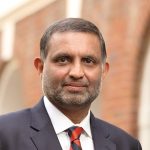
Name of the Speaker: Prof. Venkataraman Lakshmi Title of the Seminar: A study of hydrological extremes from space Date and Time: 14th June 2024 (Friday), 04:00 pm Online Platform: MS Teams (link to the video of the seminar) About the Speaker: Prof. Venkataraman Lakshmi graduated from the University of Roorkee in 1987 with a bachelor’s degree in civil engineering and a Doctorate in Civil and Environmental Engineering in 1996 from Princeton. He worked at NASA Goddard Space Flight Center from 1996-1999 as a research scientist in the Laboratory for the Atmospheres. His areas of research interest are catchment hydrology, satellite data validation and assimilation, field experiments, land-atmosphere interactions, satellite data downscaling, vadose zone, and water resources. He is currently the John L Newcomb Professor of Engineering in the Department of Civil and Environmental Engineering at the University of Virginia. He has served as Cox Visiting Professor at Stanford University 2006-2007 and 2015-2016 and Program Director for Hydrologic Sciences at the National Science Foundation (2017-2018). Prof. Venkat is a fellow of the American Society of Civil Engineers (ASCE), Geological Society of America (GSA), American Society of Agronomy (ASA) and he has over 190 peer-reviewed articles and around 600 presentations and thesis supervisor for 25 graduate students. He is currently serving as editor for Vadose Zone Journal and the founding editor-in-chief of Remote Sensing in Earth System Science (Springer Journals). He has served on the National Academies Panel for the Decadal Survey of Earth Observations from Space (NASA) and as chair of the planning committee for Groundwater Recharge and Flow: Approaches and Challenges for Monitoring and Modeling Using Remotely Sensed Data (NGA). He is currently serving as a member of the Water Science and Technology Board, National Academy of Sciences and Vice-Chair of the Earth Science Advisory Committee for NASA. He is the President-Elect of the Hydrology Section of the American Geophysical Union Abstract: Land surface hydrology is a collection of complex processes. The spatial variability both the land surface properties (soil and vegetation) as well as the meteorological inputs (precipitation and radiation) play an important role in hydrology. Satellite remote sensing has a broad spatial and repeat temporal view of the land surface and can provide observations for use in hydrology such as soil moisture, surface temperature, and vegetation density. The variability of the water cycle causes extremes such as droughts and floods and these have an impact on society. In addition, landslides and permafrost thaw are the two other hydrological extremes that impact society. In the past two decades with the advent of improved satellite sensors, modeling, and in-situ observations, quantification of the water cycle and its extremes has become possible. These satellite sensors include – microwave observations for soil moisture and precipitation; visible/near-infrared for vegetation and evapotranspiration, gravity for groundwater/total water, and thermal observations for surface temperature. In this talk, I will focus on using models, satellites, and in-situ observations for hydrological variability specifically as they relate to hydrological extremes. |
|
27 May
2024
|
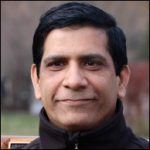
Name of the Speaker: Prof. Brajesh Kr. Dubey Title of the Seminar: Circular Engineering Approaches in Environmental Management to Achieve UN-SDGs Date and Time: 27th May 2024 (Monday), 04:30 pm Online Platform: MS Teams (link to the video of the seminar) About the Speaker: Prof. Brajesh Kr. Dubey is a Professor of Resource Recovery and Circular Engineering in the Department of Civil Engineering and Chair of the School of Water Resources at IIT Kharagpur, India. He is a renowned expert in Circular Engineering, Waste/Resource Management, Life Cycle Analysis (LCA), and Decarbonization. His research is funded by organizations such as UNIDO, National Geographic Society, OECD, and others. Prior to his Ph.D., he worked for four years as a Civil/Environmental Engineer. Dr. Dubey has authored 185 journal papers, 4 edited books/conference proceedings, 35 book chapters, and 27 conference papers, with an H-index of 49 and over 8,900 citations on Google Scholar. He has given over 75 invited presentations worldwide. He serves on editorial boards for five journals and has participated in various professional committees, including the State Advisory Committee for Solid Waste Management in West Bengal, India, and the Organic Waste Facility Public Liaison Committee in Guelph, Ontario, Canada. Abstract: This presentation explores how a circular engineering (CE) approach in resource management can help achieve the UN Sustainable Development Goals (UN-SDGs). The UN-SDGs’ principles—public health, environmental considerations, resource value, and economic development—align with environmental management drivers. Thus, prioritizing a circular economy, especially post-COVID, is crucial. Challenges in policy, technology, and public engagement may impede this transition. Solutions include creating green jobs, formalizing stakeholder roles, and training informal workers. recovery infrastructure can address climate change, a key UN-SDG focus. CE-based designs and business models will extend product lifespans, reduce waste, and provide long-term benefits. |
|
13 May
2024
|

Name of the Speaker: Dr. Solomon Vimal Title of the Seminar: Curating Robert E. Horton’s Bibliography Date and Time: 13th May 2024 (Monday), 04:00 pm Online Platform: MS Teams (link to the video of the seminar) About the Speaker: Dr. Solomon Vimal currently holds the dual role of CEO at Geothara and Postdoc at Jacobs-Technion Institute, Cornell-Tech, NYC through the Runway Startup Postdoc Program. His primary mission revolves around developing an enterprise data science product aimed at enhancing security in water, energy, and climate (WEC) domains, with market interests in sustainable infrastructure design and risk management. Dr. Vimal completed his Ph.D. at the Department of Geography, University of California, Los Angeles, focusing on climate change impacts on Arctic lakes. His exceptional academic achievements include numerous fellowships, awards, and prizes, notably the Norman Medal from ASCE. With over 10 published papers and pending patents, he has demonstrated a commitment to geospatial data science. Dr. Vimal’s extensive global education in hydrology, including three master’s degrees and a bachelor’s degree in civil engineering, underscores his expertise. Additionally, his contributions to hydrology, such as inventing algorithms for resilience and rediscovering a century-old evaporation estimation method, have advanced our understanding of land-atmosphere interactions. Abstract: Robert E. Horton (1875-1945) is regarded as the father of modern Hydrology for setting the field on a strong quantitative footing. While he published well over 200 works (papers, reports, and books), only about 80 of them have been listed in bibliographies until recently. His works are found scattered in several libraries and archives throughout the US. Our bibliography curation project, which began in 2018 nearly tripled the known list of Horton’s publications from 80 to over 200. We are digitizing all of these works, as well as his unpublished works, letters and drafts, to make them openly available to hydrologists. A GenAI-enabled Horton bot will be created to seamlessly access all the material so that hydrologists can “consult” with Horton on some of his fundamental contributions to hydrology. Noteworthy findings from our work includes Horton’s correspondence with Theodore von Karman circa 1938, for a work that is part of a “bluebook” (similar to Peter Eagleson’s 1991 report) where Horton lays out a comprehensive approach for runoff processes; a 1949 Hydrology textbook where Horton is not credited as co-author even though he spent 5 years of his time developing the book; a Hydrology handbook published posthumously in 1949, presumably the first of its kind, which may have inspired the classic Handbook of Hydrology by Ven te Chow (1962).
|
|
08 Apr
2024
|
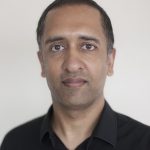
Name of the Speaker: Prof. Ashish Sharma Title of the Seminar: Can Spectrally Transformed CMIP6 Decadal Projections Improve Interannual Rainfall Forecasts? Date and Time: 08th April 2024 (Monday), 04:00 pm Online Platform: MS Teams (link to the video of the seminar) About the Speaker: Ashish is a Professor of Civil and Environmental Engineering at the University of New South Wales, Sydney, Australia. He is an engineering hydrologist interested in problems involving hydrological uncertainty. Much of his research has focused on the impact of climate change and variability on hydrological practice, along with applications related to remote sensing, formulating stochastic approaches, developing hydrological models, and the two big hydrology bread-and-butter problems- design flood estimation + water resources management. Ashish has served as the President of the IAHS Commission on Statistical Hydrology and continued to serve as the Editor-in-Chief of the Journal of Hydrology-X, newly transformed to offer “Letter” contributions of broad international and methodological interest. Abstract: Can CMIP6 decadal projections be effective for multi-decadal water resources planning? This is the underlying question that motivates the present research, investigating what are the key deficiencies that limit their direct use for applications, and whether cleverly formulated mathematical alternatives can be used as effective postprocessors. This study focuses on the development of a robust framework for predicting droughts over interannual to decadal scales to enhance water resource management. The proposed framework adopts the Wavelet System Prediction (WASP) methodology, which transforms the spectral attributes inherent to climate indices to improve the skill of drought forecasts. Further improvement in forecasting capability is achieved through a Hierarchical Linear Combination (HLC) logic, which incorporates forecasts from ten climate indices that are obtained from CMIP6 decadal projections. These indices, including ENSO-related sea surface temperature anomalies and other climate drivers closely linked to Australian rainfall, are derived from decadal predictions of the Decadal Climate Prediction Project (DCPP). The results of projected drought indices across various scales in Australia demonstrate the substantial potential of the integrated HLC-WASP framework to significantly improve the forecast skills of medium to long-term drought scenarios. It must be noted that the underpinning reason for the improvement here is not an enhancement of the dynamical forecasts, but a spectral modulation of their future simulations to define a new set of climate indices that are “optimal” for use in a forecasting context. In other words, wherever empirical forecasts are needed, the spectral transformation used here will redefine system predictors to maximize forecast quality to the extent that is mathematically possible.
|
|
15 Mar
2024
|
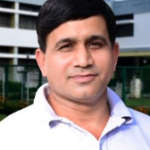
Name of the Speaker: Prof. Brijesh Kumar Yadav Title of the Seminar: Management of soil-water pollution using in-situ remediation and advanced monitoring methods Date and Time: 15th March 2024 (Friday), 04:00 pm Online Platform: MS Teams (link to the video of the seminar) About the Speaker: Prof. Brijesh K Yadav is the Head of the Hydrology Department at the Indian Institute of Hydrology (IIT) Roorkee, and a Joint Faculty at the International Centre of Excellence for Dams (ICED), IIT Roorkee. He holds an MTech in Water Resources from IIT Delhi and completed his PhD from IIT Delhi and UNESCO-IHE Delft in 2008. Prof. Yadav has been honored with the ‘Ramanujan Fellow’ award by the Government of India and has received postdoctoral fellowships from the University of California Davis (USA) and Utrecht University (Netherlands). His research focuses on groundwater management, flow and solute transport through the subsurface, phytoremediation, and bioremediation of polluted sites, managed aquifer recharge, seawater intrusion, and CO2 geo-sequestration. He has published over 80 peer-reviewed journal and book articles and presented at more than 60 national and international gatherings. Prof. Yadav is the Secretary General and Fellow of the Association of Global Groundwater Scientists (AGGS) and serves on editorial boards, as an associate editor, and editor of five reputed journals. He has mentored postdoctoral researchers and fellows, supervised PhD scholars and MTech dissertations, and managed international and national research/consultancy projects. Prof. Yadav has organized international conferences, symposiums, and workshops, including the International Groundwater Conferences and the Roorkee Water Conclave. He has also coordinated numerous training courses/workshops and received recognition as an outstanding PG teacher at IIT Roorkee. Additionally, he chairs the “Expert Committee on Groundwater” of Sikkim and has served on various technical committees related to soil-water resources management. Abstract: Soil-water pollution from hydrocarbons and heavy metals, caused by both human activities and natural sources, is a growing concern. Efficient remediation techniques and monitoring systems are required to address this issue. In-situ remediation techniques offer a more sustainable and economical solution by treating a mixture of contaminants directly in place. This talk discusses the principles and applications of in-situ bioremediation methods and Permeable Reactive Barriers (PRBs), along with advanced monitoring methods. Engineered bioremediation techniques were studied for land sites polluted with hydrocarbons, and an in-situ PRB system was used to treat groundwater polluted with arsenic, as demonstrated through practical experiments. A comparative assessment of various bioremediation techniques (such as Biostimulation, bioaugmentation, phytoremediation, and natural biodegradation) was conducted to evaluate their biodegradation rate, lag phase duration, and total degradation time for hydrocarbons. These treatment techniques were then applied in the field to improve the soil and water quality of problematic sites in India. Similarly, in-situ remediation of arsenic-contaminated groundwater was investigated using a well-integrated PRB system. The findings of this research can enhance the practical application of novel, well-integrated PRB systems along with these composites for arsenic remediation. The importance of bio-monitoring, along with conventional physico-chemical monitoring techniques, is discussed in last for the better management of polluted sites. Overall, implementing in-situ remediation with cutting-edge monitoring techniques is a viable strategy for controlling (sub)-surface water and soil contamination, providing long-term solutions that protect public health and the environment. Key Words: Soil and Groundwater pollution, In-situ remediation, Bio-monitoring, Sustainable remediation strategies |
|
12 Feb
2024
|
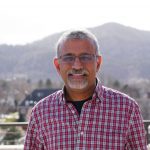
Name of the Speaker: Prof. Rajagopalan Balaji Title of the Seminar: The Once and Future Variability of Colorado River Water Resources Date and Time: 12th February 2024 (Monday), 04:00 pm Online Platform: MS Teams (link to the video of the seminar) About the Speaker: Professor Rajagopalan Balaji is a Professor in the Department of Civil, Environmental and Architectural Engineering (CEAE) and a Fellow of the Cooperative Institute of Research in Environmental Sciences (CIRES), CU Boulder. He is the former Chair of the Department during 2014– 2022. He pursues research in diverse interdisciplinary areas spanning– hydro-climatology, water resources management, Indian summer monsoon, paleoclimate, and stochastic hydrology. In addition, large-scale statistical analysis and modeling for applications to water and wastewater quality, construction safety, building energy efficiency, and others. He publishes widely in leading and prestigious peer-reviewed journals. He was elected Fellow, of the American Geophysical Union, in 2018, of the American Society of Civil Engineers, and awarded the Fulbright-Kalam Climate Fellowship in 2023, all prestigious honors. Abstract: Now serving over 40 million people and irrigating roughly 5 million acres of land over seven western US states and Mexico, reliance on Colorado River water has never been greater, paradoxically at a time when its annual flow has been low and unreliable due to the ongoing two decades long ‘millennial drought’. As a result, two large reservoirs that can hold four times the annual average flow, are at their historical lows, stressing the water resources to crisis level. This will only be exacerbated by a future warming climate in which such droughts are projected to be frequent. Thus, leading the Colorado River to be designated, in 2022, America’s most endangered river. The management of water resources via complex decrees and agreements, the ‘law of the river’, is struggling to help the stakeholders manage the water resources efficiently during this severe and sustained drought. To enable sustainable water resources in the future, a systematic understanding and modeling of past, current, and future variability is crucial. For, the past is prologue. This understanding will provide an informed judgment for stakeholders and decision-makers to debate options and enable robust decisions. This talk will provide an overview of the current understanding of the once and future variability of flows along with emerging models for flow simulation and projections for water resources management. |
|
04 Jan
2024
|
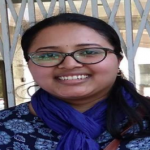
Name of the Speaker: Dr. Shruti Hegde Title of the Seminar: Electrochemical Detection of Pollutants in Water and Air Date and Time: 04th January 2024 (Thursday), 02:30 pm Online Platform: MS Teams (link of the seminar) About the Speaker: Shruti Hegde received her PhD (Chemical Engineering) from the University of Utah, USA. Currently, she is working as a Postdoctoral Research Associate at the Department of Mechanical Engineering, University of Utah. Her primary research focuses on developing low-cost electrochemical sensing methods for air and water pollutant monitoring. She has over ten publications in the above area of research. She currently works on electrochemical detection of toxic metals and biological pathogens in water and serum to develop a device for use in environmental and health applications. She has also worked on developing low-cost nano sensors to detect volatile organic gases for monitoring indoor and outdoor air quality. Abstract: Access to clean fresh water is vital for human survival and contamination of freshwater sources, including groundwater and surface water, can cause adverse health effects. Heavy metal contamination in drinking water is unsafe and can cause various human diseases. Similarly, toxins released from pathogens like bacteria and viruses are among the most commonly found contaminants in water, leading to prevalent waterborne diseases. There is a need for rapid, cost-effective detection of the toxins in water. Spectrometry techniques for the detection of heavy metals show good sensitivity and low limits of detection but are difficult to handle and have high operation costs. Polymerase chain reaction and enzyme immunoassay techniques are the gold standard for pathogen detection. However, these methods require several complicated processing steps and expensive instrumentation, which makes these methods unsuitable for use in point-of-use systems. This talk will highlight how electrochemical biosensors are a practical solution for monitoring water quality parameters. Industrial facilities and chemical plants are significant sources of fugitive volatile organic compound (VOC) emissions, and there is a need for cost-effective methods of screening these emissions. This talk will also highlight the results from a low-cost and rapid sensing system comprising an electrochemically anodized TiO2 nanotube-based sensor array to detect benzene, toluene, and ethanol at room temperature. |
|
27 Dec
2023
|
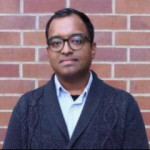
Name of the Speaker: Dr. Tirtha Banerjee Title of the Seminar: A micrometeorological perspective into wildland fire dynamics Date and Time: 27th December 2023 (Wednesday), 10:30 am Online Platform: MS Teams (link to the video of the seminar) About the Speaker: Dr. Tirtha Banerjee is an Associate Professor at the Department of Civil and Environmental Engineering, University of California, Irvine. He received his B.E. degree in Civil Engineering from Jadavpur University (Calcutta, India) in 2011 and his Ph.D. in Environmental Science from Duke University (Durham, NC, USA) in 2015. After conducting postdoctoral research at Karlsruhe Institute of Technology (KIT) in Germany and Los Alamos National Lab (NM, USA) as a Chick Keller Postdoctoral Fellow in climate science and subsequently, as a Director’s Fellow in atmospheric sciences, he joined UC Irvine in the fall of 2019, where he was an Assistant Professor till the fall of 2023. Research in the Boundary Layers and Turbulence (BLT) Lab led by Prof. Banerjee involves environmental fluid mechanics, biosphere-atmosphere interaction, and wildland fires using a range of theoretical, numerical, and experimental techniques. He was recently awarded the NSF CAREER Award to conduct research on the role of turbulent fluid dynamics in wildland fire behavior. He currently serves as an Associate Editor for the Journal of Applied Meteorology and Climatology (AMS), and Earth Systems and Environment (Springer); as an Editor for Agricultural and Forest Meteorology (Elsevier); as well as an Editorial board member for Scientific Reports (Nature). Prof. Banerjee also serves on the Science Advisory Panel of the Fire and Forest Resilience Task Force in the State of California and was recently Elected Vice-President of the Coupled Land-Atmosphere Systems (ICCLAS) Commission of the International Association of Hydrological Sciences (IAHS). Abstract: Fire suppression activities in the past few decades in North America have led to higher fuel accumulations, which coupled with shifting hydroclimatic patterns has led to an increase in frequency and severity of wildland fires. Prescribed fires and fuel treatments such as mechanical thinning are deemed to be effective tools to manage fuel loads and establish a higher degree of control over landscape management and restoration against catastrophic megafires. However, assessing the effectiveness of fuel treatments is rendered complicated due to several factors such as wind, fuel moisture, and fire-atmospheric interactions at the fine scales. The present work explores these issues by using physics-based simulations and data analysis from novel experiments while varying the degrees of fuel treatments and fuel moisture, as observed during different stages of fuel management. Systematically varying these parameters yield widely different fire behavior patterns. Detailed analyses on turbulent heat and energy exchange are conducted to understand the fundamental processes governing varying regimes of fire intensity, fire spread, ember transport, and fuel consumption under different conditions of fuel moisture and treatment. The conclusions are generalized to highlight the importance of considering vegetation response to hydrometeorological events, coupled with fine-scale fire-atmosphere interactions while managing wildland fire behavior. On the other hand, wildland fires themselves are characterized by their own weather which is driven by both shear and buoyancy-driven turbulence. They also act as a local source for scalars, namely greenhouse gases (such as carbon dioxide and water) and soot particles as resultants of the ignition process. In this talk, we will explore the complex turbulent dynamics of wildfire propagation using the tools of micrometeorology. Insights into the energetics of turbulent exchange processes during fire propagation will lead to a better understanding and improved models for wildland fire behavior. |
|
03 Nov
2023
|
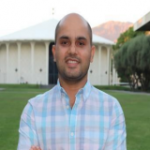
Name of the Speaker: Dr. Surendra Adhikari Title of the Seminar: Melting Ice, Rising Oceans: A Peek into the Future based on Date and Time: 3rd November 2023 (Friday), 04:00 pm Venue: ICWaR lecture hall Online Platform: MS Teams (link to the video of the seminar) About the Speaker: Surendra Adhikari is an Earth and space scientist at the Jet Propulsion Laboratory, California Institute of Technology. Dr. Adhikari holds a Ph.D. in theoretical glaciology and a master’s degree in engineering geology. His general research interests lie in the intersection between climate science and solid Earth geophysics. Currently, he focuses on understanding the Earth’s surface and interior mass transport processes and their manifestation in terms of Earth’s gravitational, rotational, and deformational changes. Dr. Adhikari is a member of the NASA Sea-level Change Team, Solid Earth Team, and GRACE/-FO Science Team. He has received several early career awards, including a NASA Public Achievement Medal and an AGU John Wahr Award. Abstract: Significant uncertainty in sea level projections stems from poorly understood evolution processes of polar ice sheets. The recent IPCC report states that a more than 15 m global mean sea-level rise cannot be discarded under high emission scenarios by 2300, mainly owing to instability processes associated with the Greenland and Antarctic ice sheets. In this presentation, I review current knowledge of ice sheet dynamics, instability processes, and feedback mechanisms involving oceans, atmosphere, and solid Earth. While constraining individual processes is critical, I argue that a system modeling approach is essential for improved projections of the polar ice sheets and global and regional sea levels. |
|
20 Oct
2023
|
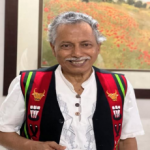
Name of the Speaker: Prof. B. N. Goswami Title of the Seminar: Revisiting the Length of the Monsoon Rainy Season (LRS) over Date and Time: 20 October 2023 (Friday), 10:00 am Online Platform: MS Teams (link to the video of the seminar) About the Speaker: Prof. Goswami did his pre-university in 1966 and B.Sc. from Cotton College in 1969 and master’s in physics from Gauhati University in 1971. He did his Ph.D in Plasma Physics from PRL, Ahmedabad in 1976 and a two-year postdoc with Prof. Jule Charney, a.k.a the ‘Father of modern Meteorology’ at the MIT and a 3-year postdoc at the NASA/GSFC on monsoon modelling. He then joined IISc, Bangalore from 1985 to 2006, becoming Professor and Chair of the Centre for Atmospheric and Oceanic Science (CAOS). He then moved to the Indian Institute of Tropical Meteorology, Pune in 2006 and then lead the Indian Monsoon Mission Program to uplift Indian weather and climate prediction capability to be one of the best of the world. He has served on many National and International Committees and has been Visiting Research Faculty at the Princeton University and Maryland University. He has been Members of many National and International Committees and has several Awards to his name such as Shanti Swarup Bhatnagar Award, 1995, K.R. Ramanathan Prize by Indian National Science Academy, 2008, Fellow, The World Academy of Sciences, Fellow, Indian Academy of Sciences, Fellow, Indian National Science Academy, Fellow, National Academy of Sciences, India, Fellow, Indian Meteorological Society, National Award in Atmospheric Science and Technology, 2014 by the Ministry of Earth Sciences, K. R. Ramanathan Medal, Indian Geophysical Union, 2014, Life Time Achievement Award in Science and Technology by Government of Assam, 2018, SERB Distinguished Fellow Award, Department of Science and Technology, Govt. India, (2018-2023) and many more. Abstract: An iconic feature of the Indian Summer Monsoon Rainfall (ISMR), a longer than June-September rainy season over the Northeast India (NEI) while a much shorter one over the northwest India is expected to be altered by climate change but an objective definition of the length of the monsoon rainy season (LRS) over the NEI is lacking. While the May rainfall over the NEI is larger than June rainfall over central India (CI), the Onset of monsoon over NEI is considered to take place by June 5 by IMD. Here, defining the LRS objectively over NEI, we show that that climatological onset over NEI takes place around 18th May and withdrawal around 15th October making the length of the rainy season ~155 days. We further show that the El Niño and Southern Oscillation (ENSO) is a primary driver of LRS while rainfall during LRS is poorly correlated with the ENSO. We also provide compelling evidence to establish that May rainfall is ‘monsoon rainfall’ and not ‘pre-monsoon’ rainfall as assumed by the community so far. Inclusion of May rainfall over NEI in the seasonal rainfall of All India monsoon rainfall has important implications on variability and predictability of India monsoon rainfall. In contrast to a significant decreasing trend of LRS and LRS-rainfall during the historical period, the projected LRS under SSP5-8.5 scenario continues to decrease while the LRS-rainfall acquires a significant increasing trend over NEI. A significant increase in impact of hydrological disasters is expected over NEI in future due to increasing intensity and frequency of extreme rain-events within a shorter rainy-season. |
|
23 Aug
2023
|
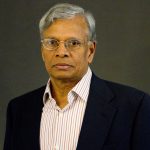
Name of the Speaker: Prof. S. Lakshmivarahan Title of the Seminar: Dynamic Data Assimilation – overview Date and Time: 23 August 2023 (Wednesday), 5:00pm Online Platform: MS Teams (link to the video of the seminar) About the Speaker: After completing his PhD from the Indian Institute of Science in 1973, S. Lakshmivarahan held faculty and post-doctoral positions at the IIT-Madras, Brown and Yale Universities through 1978. In the Fall of 1978, he joined the School of Computer Science, University of Oklahoma (OU) where he held the position of George Lynn Cross (GLC) Research Professor since 1995. Since July 2019, he holds the position of GLC Research Professor Emeritus at OU. His research interests are in Applied Mathematics and Computation and includes Data Mining and Analytics, Data Assimilation, Computational Finance, Parallel Computation and Learning Algorithms. He is author/coauthor of six books in these areas. Two of his books – “Dynamic Data Assimilation: a least squares approach” Cambridge University Press, 2006 and “Forecast Error Correction using Dynamic Data Assimilation, Springer, 2017 together cover all aspects of the theory and applications of Data Assimilation in Science and Engineering. He was elected as a Fellow of the IEEE in 1993 and a Fellow of ACM in 1995. He has held short-term visiting positions at Centers of Higher Learning in Japan, China, Taiwan, India, Germany, England, Mexico, Brazil, Canada, and USA. Abstract: There is a steady shift away from the analog model building and upward scaling analysis towards mathematical/digital representation of the physical processes – called digital twin, that captures most if not, all aspects of the process in question. While models represent our perceptions and are abstractions of reality, the actual observations of physical processes (modulo the measurement noise) represent reality. The mathematical process of bridging the gap between the model and the observation has come to be known as Data Assimilation. Using a simple example, this talk will bring out the benefits of data assimilation in improving the quality of forecast products. An overview of various methods for dynamic data assimilation will be provided. |
|
27 Jul
2023
|
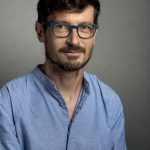
Name of the Speaker: Dr. Gilles Boulet Title of the Seminar: High resolution remote sensing data in eco-agro-hydrology: opportunities in the context of the CNES/ISRO TRISHNA mission Date and Time: 27 July 2023 (Thursday), 4:00pm Online Platform: MS Teams (link to the video of the seminar) About the Speaker: Dr. Gilles Boulet is an IRD Senior Scientist affiliated with the CESBIO lab in Toulouse (https://www.cesbio.cnrs.fr/) and currently deputed at the Indo-French Cell for Water Science at the Indian Institute of Science. He leads the Ecosystem Stress Group of the TRISHNA CNES/ISRO Thermal InfraRed mission proposal on the French side and is the PI of several research projects sponsored by the french space agency CNES as well as the french national funding body ANR to develop and evaluate evapotranspiration products based on remote sensing data. His interests lie in water fluxes and variables retrieval from TIR data, land surface modeling and Data Assimilation. He has more than 30 years of experience in field experiments and research developments designed for semi-arid water resources sustainable management and currently leads one of the two CESBIO research teams entitled “Modeling and remote sensing of land surface processes”. He is also the Secretary of the Remote Sensing commission of IAHS. Abstract: In his talk, he will address what and how land surface water variables and fluxes can be retrieved from high resolution remote sensing data with current and future platforms such as TRISHNA, SBG or LSTM. This will be put in perspective with key questions such as the sustainable management of water resources at local an regional scales and the fire and drought risk assessment. He will bring also some concrete elements on the TRISHNA evapotranspiration and water stress products definition and algorithms, as well as the current and future corresponding cal/val activities. |
|
08 Jun
2023
|
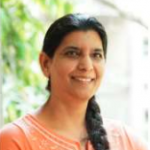
Name of the Speaker: Dr. Jasmeet Judge Title of the Seminar: Microwave and VIR remote sensing for soil moisture and crop phenology using AI Date and Time: 08 June 2023 (Thursday), 4:00pm Online Platform: MS Teams (link to the video of the seminar) About the Speaker: Jasmeet Judge is a Professor in the Agricultural and Biological Engineering Department at the University of Florida, where she is also the Director of the Center for Remote Sensing. She received the Ph.D. degree in electrical engineering and atmospheric, oceanic, and space sciences from the University of Michigan. Her expertise includes microwave remote-sensing applications to terrestrial hydrology for agricultural regions; machine learning methods for spatio-temporal scaling and data-model fusion. She has led many field experiments with active and passive microwave sensors to develop/improve remote sensing, crop growth, hydrology, and AI algorithms. She has been awarded NASA Group Achievement Awards for interdisciplinary field campaigns. She has been active in advocating for the protection of the EM spectrum for passive scientific use from radiofrequency interference as the past Chair of the National Academe’s Committee on Radio Frequency. She is a Senior Member of the IEEE Geoscience and Remote Sensing Society, where for the past 2.5 decades she has served in many roles. Abstract: Space-borne sensors provide global information for many valuable applications including agriculture and hydrology. New sensors and technological advances continue to improve spatial and temporal resolutions, further enhancing its value. This seminar will include two research projects conducted at the Center for Remote Sensing: the first, spatio-temporal scaling of microwave observations for soil moisture studies using AI. In this project, data-driven machine learning methods are used to merge data at microwave and other wavelengths to obtain high resolution soil moisture in agricultural regions. In the second project, remotely sensed VIR observations are integrated with physics-guided machine learning for estimating in-season crop phenology. |
|
29 May
2023
|
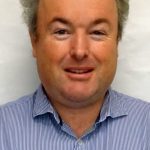
Name of the Speaker Dr. Murray Peel
Title of the Seminar Recent results from investigating annual rainfall-runoff relationship changes during the Millennium Drought in south-eastern Australia.
Date &Time Monday, May 29, 2023, 11:00 A.M (IST)
MS Teams link – MS Teams (link to the video of the seminar)
Abstract: The Millennium Drought in south-eastern Australia (1997-2009 ) was a 13-year extended dry period during which unusual catchment responses were observed. In just over half of the catchments investigated a statistically significant downward shift in long-term annual rainfall-runoff relationship was observed. In those shifted catchments, a given amount of rainfall resulted in less runoff than expected during the drought. Furthermore, later research demonstrated that many of the shifted catchments had not recovered several years after the drought ended and they were still producing less runoff than expected. Here I present a summary of recent results from our investigations into shifted rainfall-runoff relationships and modelling of runoff during the Millennium Drought. The Millennium Drought is an observed case study of a prolonged dry period, potentially indicative of future conditions in south-eastern Australia, which has significant implications for long-term streamflow behavior and modelling of climate change runoff projections.
About the Speaker: Dr Murray Peel is a Senior Lecturer and ARC Future Fellow in the Department of Infrastructure Engineering at the University of Melbourne. He has a Ph.D. (Geography) and BSc (Hons) from the University of Melbourne. His research interests include catchment hydrology; hydro-climatology; understanding the drivers of interannual variability of annual precipitation and runoff around the world; understanding and modelling the hydrologic impacts of land use change; understanding and modelling the hydrologic impacts of climate change and the uncertainty around those projections; improving hydrologic modelling under changing conditions; and drawing hydro-climatology insights from palaeoclimatology information. His research and consulting activities have produced over 120 publications, including 86 articles in international journals and 9book chapters.
|
|
24 Apr
2023
|
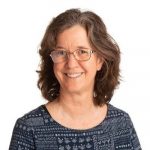
Name of the Speaker: Dr. Eleanor Blyth Title of the Seminar: How the land resonates with the atmosphere: a manifesto for complexity in land models Date and Time: 24 April 2023 (Monday), 4:00pm Online Platform: MS Teams (link to the video of the seminar) About the Speaker: With over 30 years of academic research and land-surface model development at the UK Centre for Ecology and Hydrology in Wallingford. Eleanor’s scientific expertise is the role of the land surface in climate, meteorology and hydrology, with specialist expertise in Evapotranspiration and Land-Atmosphere Interactions. She has a particular interest in the complex interactions of ecology and hydrology and the role of this interaction in regional carbon budgets of the region. She is known for developing understanding of the physics of land surface models. Especially, the 3 components of evapotranspiration: interception, transpiration and bare soil evaporation using observations and models and for innovative methods for evaluating Land-Atmosphere models. She has held the following roles in international science committees:
Abstract: The land system responds to changes and drivers from the atmosphere in different ways around the planet. This is true of both the water and energy system as well as the carbon system. In this talk, we explore how this change can affect the weather and climate system and what that means in terms of how complex our models need to be. |
|
30 Mar
2023
|

Name of the Speaker: Dr. Axel Kleidon Title of the Seminar: Working at the limit: How thermodynamics shapes the Earth system Date and Time: 30 March 2023 (Thursday), 4:00pm Online Platform: MS Teams (link to the video of the seminar) About the Speaker: Axel Kleidon studied physics and meteorology at the University of Hamburg and Purdue University, Indiana, USA. He received his doctorate in 1998 from the Max Planck Institute for Meteorology on the influence of deep-rooted vegetation on the climate system. He subsequently conducted research at Stanford University in California and at the University of Maryland. Since 2006, he has led the independent research group “Theory and Modeling of the Biosphere” at the Max Planck Institute for Biogeochemistry in Jena, Germany. His research interests range from the thermodynamics of the Earth system to the natural limits of renewable energy sources. Abstract: Earth system processes perform work to maintain motion, cycles and metabolisms – an aspect that is not commonly considered. In this talk I will show how thermodynamics plays a central role in the Earth system, determining how and how much work can be extracted from sunlight. Work, in turn, is a major constraint on dynamics, from atmospheric motion to hydrologic cycling and the global biosphere. I show that by maximizing work we can describe highly complex Earth system processes in a relatively simple way. I use examples from the atmospheric circulation, hydrology and terrestrial ecosystems to illustrate this approach and its utility for Earth system science. |
|
28 Feb
2023
|
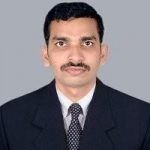
Name of the Speaker: Dr. Yashavanth Kumar GS Title of the Seminar: Food Safety Standard Authority India Rules and Regulations for Packaged Drinking water Date and Time: 28 February 2023 (Tuesday), 4:00pm Online Platform: MS Teams (link to the video of the seminar) About the Speaker: Dr. Yashavanth Kumar G S is the Chief Chemist at the Central Chemical Lab, Bangalore. He is a passionate communicator on the Food Safety and Standard act and Food Adulteration Concepts. He has published more than 13 Research articles in reputed peer-reviewed journals and presented research papers in various national/international conference proceedings. He was awarded the Rajiv Gandhi National Fellowship (2009-13) from University Grant Commission (UGC), New Delhi. He has a Ph.D in Chemistry (2014) from Kuvempu University, and has collaborations with IISc Bangalore. His research interests are Nanotechnology, Solar Cells and Food Chemistry. Abstract: Packaged drinking water is both a need and a necessity in a country like India where most of the freshwater resources have a high contamination levels. We all are aware of multiple brands providing packaged drinking water, but are they following some standards and what are they? In this talk the regulations on packaged drinking water by the Food Safety Standard Authority of India (FSSI) will be discussed. More specifically:
|
|
19 Jan
2023
|
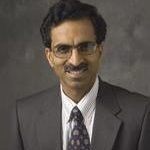
Name of the Speaker: Dr. Rao S. Govindaraju Title of the Seminar: Contending with Uncertainty in Hydrologic Experiments Across Scales Date and Time: 19 January 2023 (Thursday), 4:00pm Online Platform: MS Teams (link to the video of the seminar) About the Speaker: Rao S. Govindaraju is the Bowen Engineering Head and the Christopher B. and Susan S. Burke Professor in the School of Civil Engineering at Purdue University. He earned his PhD in civil engineering from the University of California, Davis, in 1989. His primary areas of research include surface and subsurface hydrology, contaminant transport, watershed hydrology, and climatic influences. He is interested in developing algorithms for analyzing and learning from hydrologic data. He specializes in problems dealing with uncertainty and spatial variability. His research work has been supported by various agencies such as NSF, EPA, DOD, and DOE. He has chaired national level committees, served on the editorial boards of several journals, and served as the President of American Institute of Hydrology (2017-2018). Abstract: Hydrologic modeling efforts have to contend with several types of uncertainties. Measurement uncertainties exist because of errors in measurements of state variables, while structural uncertainties result from errors in the mathematical representation of hydrologic processes. Further, parametric uncertainties arise from both measurement and structural uncertainties, and because of limited information in the available data. Despite its ubiquitous nature, uncertainty quantification is not addressed often because of (i) lack of good algorithms, and (ii) inability to separate the various forms of uncertainty through calibration exercises. In this regard, Dr. Govindaraju will share some of his enduring research efforts that he has been pursuing in collaboration with students, and try to read the tea leaves as to where his future efforts will lead him in this journey. |
